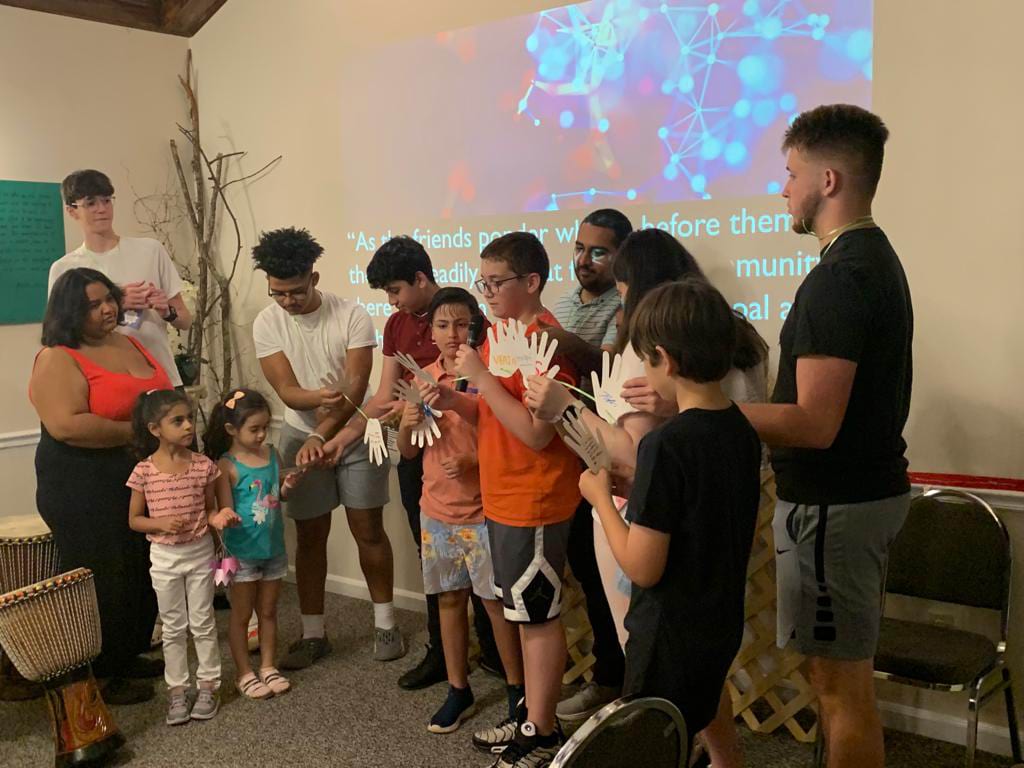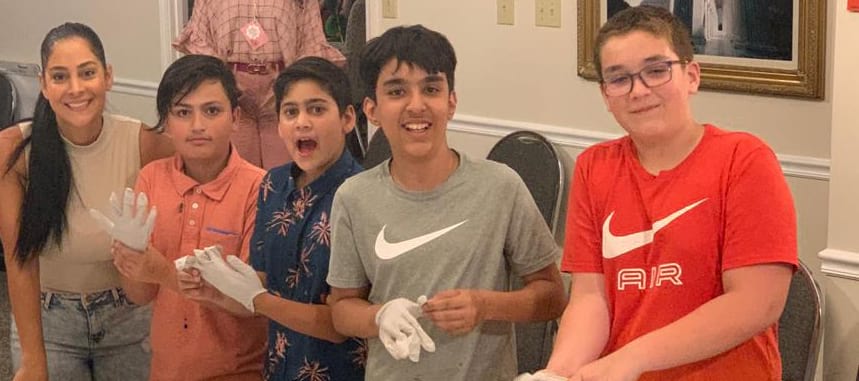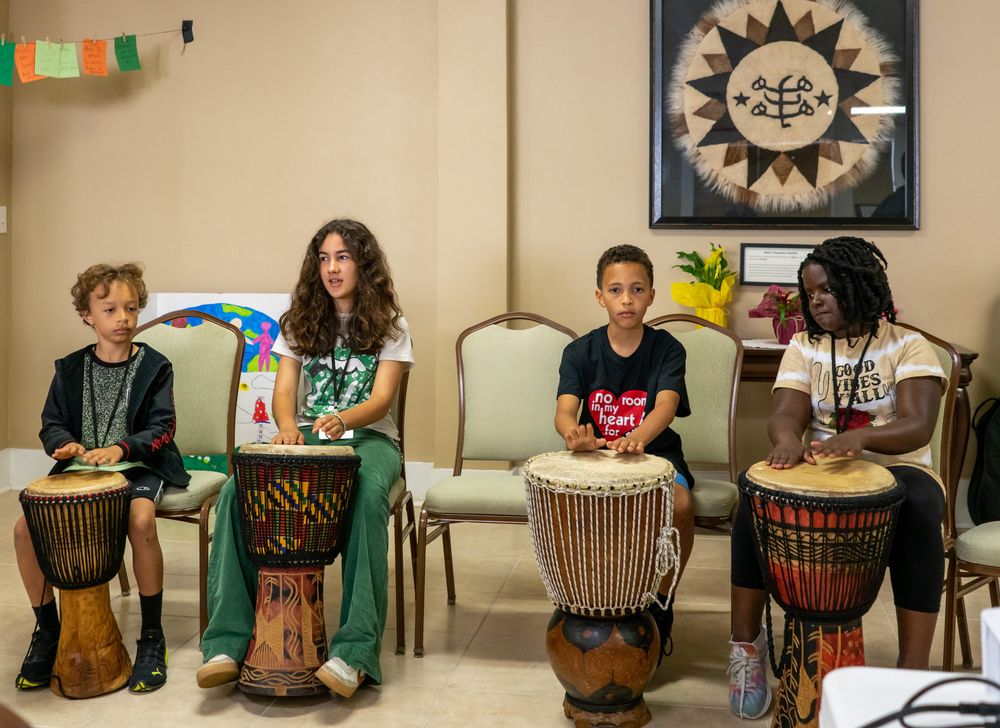This educational program typically engages older youth as animators of younger peers aged 11 to 15 to help them develop their powers of expression, capacities for moral reasoning, and an ethic of service to others. The program combines study, mentorship and social action.
Among the young ones in the community are those known as junior youth, who fall between the ages of, say, 12 and 15. They represent a special group with special needs as they are somewhat in between childhood and youth when many changes are occurring within them. Creative attention must be devoted to involving them in programmes of activity that will engage their interests, mold their capacities for teaching and service, and involve them in social interaction with older youth. -Ridvan 2000, Universal House of Justice
The merit of the junior youth spiritual empowerment program lies, first and foremost, in its effectiveness at enhancing the power of expression and the quality of spiritual perception within its participants and in assisting them to develop the capabilities necessary for a life of meaningful service to their communities. -November 14, 2012 Universal House of Justice

The Junior Youth Spiritual Empowerment Program channels the surging energies of junior youth. It is open to young people ages 12-14 and assists them to navigate through a crucial stage in their lives.
Those in their early adolescent years possess altruism, a sense of justice, eagerness to learn about the universe, and a desire to contribute to the construction of a better world.
The program helps them form a strong moral identity and empowers them to contribute to the well-being of their communities and the world at large.
By developing their character, intellectual capabilities, power of expression, and capacities for service to society, the participants come to see that they can become agents of positive change in the world.
The groups are facilitated by “animators”, often in their late teens or twenties. The animator and participants learn from each other in a participatory mode of learning. Groups of participants engage in activities such as discussion, drama, artistic expression, cooperative games, study of literature, story telling and acts of community service.
The junior youth program explores themes from a Bahá’í perspective, but is not a formal religious education program. It is open to all, subject to parental approval. Junior youth groups meet on a regular basis and there is no written homework.
While animators of junior youth groups are typically older youth or young adults, there is no age limit on being a successful animator. If you would like to learn more about starting a junior youth group and/or becoming an animator, contact: board@rtise.org.

Any child participating in a Junior Youth Group should have their parents complete the Permission Form prepared by the Office of Assembly Development:
